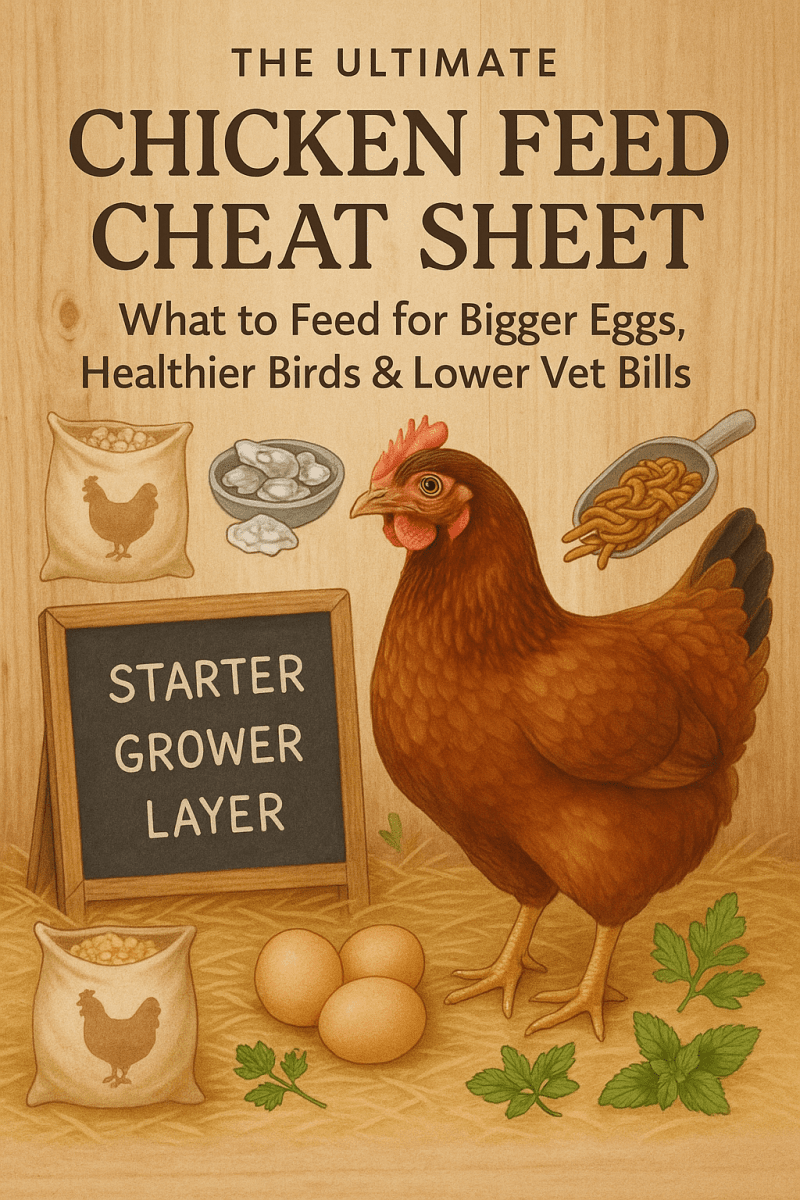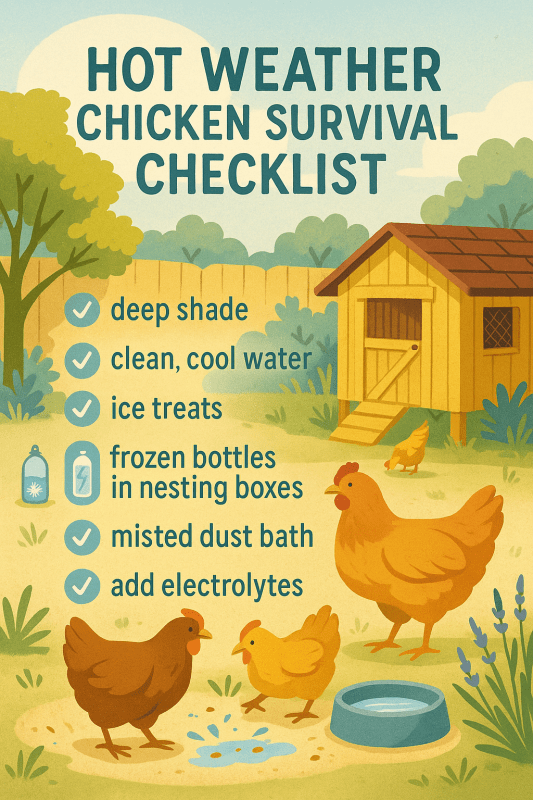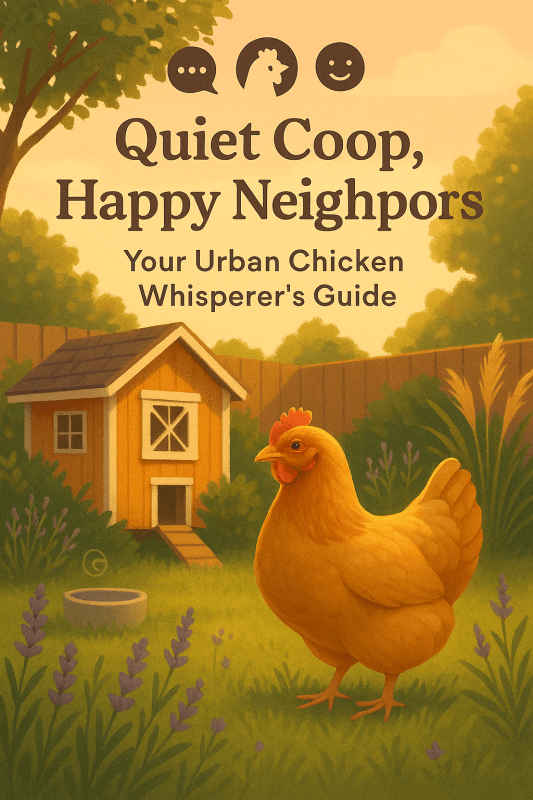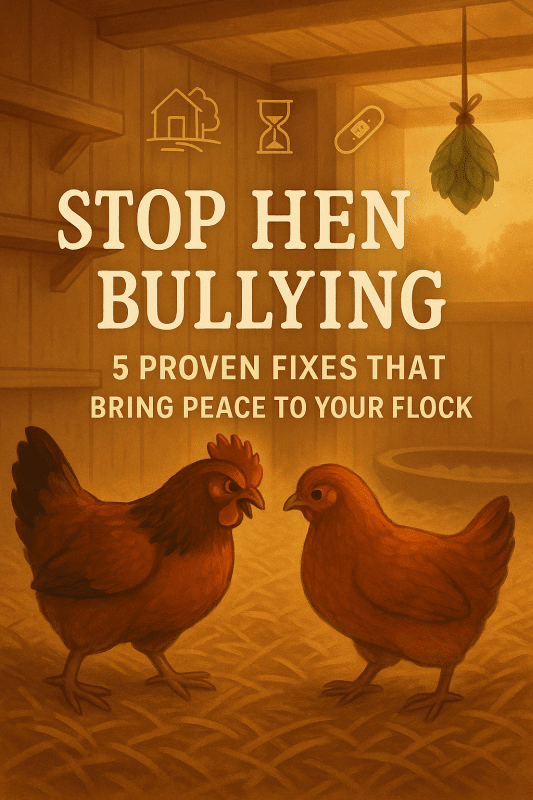Feeding your chickens shouldn't feel like a science experiment.
And yet—between cracked corn, grit, oyster shell, grower feed, layer feed, scratch grains, and those TikTokers tossing chia seeds into fermented oats—you might be wondering if you need a PhD just to feed your flock.
Let’s clear the clutter. This is your no-fluff, backyard-tested guide to what to feed, when—and why it matters. Bigger eggs, glossy feathers, and fewer vet visits start with the feed scoop in your hand.
🍳 Why Feed Matters (A Lot)
What you feed your chickens literally becomes the eggs you eat. Poor nutrition shows up in:
-
Thin shells or no shells at all
-
Decreased egg production
-
Feather loss and pecking
-
Weak immune systems → more illness
The right feed = more energy, stronger immunity, and eggs that make people say “whoa.”
📋 The Chicken Feed Cheat Sheet (Simple as Cluck)
Here’s what your chickens need—and when they need it:
| Life Stage | Feed Type | Protein % | Extras to Add |
|---|---|---|---|
| Chicks (0–8 weeks) | Starter Feed | 18–20% | Chick grit (if not medicated) |
| Pullets (8–18 weeks) | Grower Feed | 16–18% | Grit + fresh greens |
| Layers (18+ weeks) | Layer Feed | 16–18% | Oyster shell, veggie scraps |
| Molting Birds | High-Protein Layer | 18–20% | Mealworms, sunflower seeds |
| Seniors (3+ yrs) | Layer or All-Flock | 15–16% | Soft foods, vitamins as needed |
🧂Bonus Tip: Grit isn’t optional—it helps chickens digest food. If they don’t free range, offer it regularly.
💡 Feeding Add-Ons That Pack a Punch
Want bigger, brighter yolks? Smoother feathers? Fewer vet bills? Add these to your rotation:
-
Black Soldier Fly Larvae or Mealworms – Protein boost, especially during molt
-
Oyster Shell – Vital for strong eggshells
-
Apple Cider Vinegar – 1 tbsp per gallon of water = gut support
-
Fresh Herbs – Parsley, oregano, mint = immune support + pest control
-
Fermented Feed – Soaked pellets for 24 hrs = easier digestion, better nutrient absorption
⏰ When & How to Feed
-
Morning: Give fresh feed daily (1/4 pound per hen on average)
-
Afternoon Treats: Scraps or scratch grains (but don’t overdo it)
-
Water: Clean, cool, and always available—yes, even in winter
🥶 Pro Tip for Cold Weather: Add cracked corn in the evening—it warms them up overnight but shouldn’t replace balanced feed.
🚫 What Not to Feed
Save your flock (and your wallet) by skipping these:
-
Moldy bread or spoiled food
-
Raw potato peels, avocado, chocolate, caffeine
-
Too many carbs (like rice or pasta)
-
Excessive scratch grains (junk food alert!)
🧺 Feed Smarter, Not Harder
Feeding your flock right doesn’t mean spending more—it means spending smarter. A balanced diet keeps hens laying, roosters strutting, and vet visits rare.
Plus, when you’re cracking those deep-orange yolks into your skillet, you’ll taste the difference.



